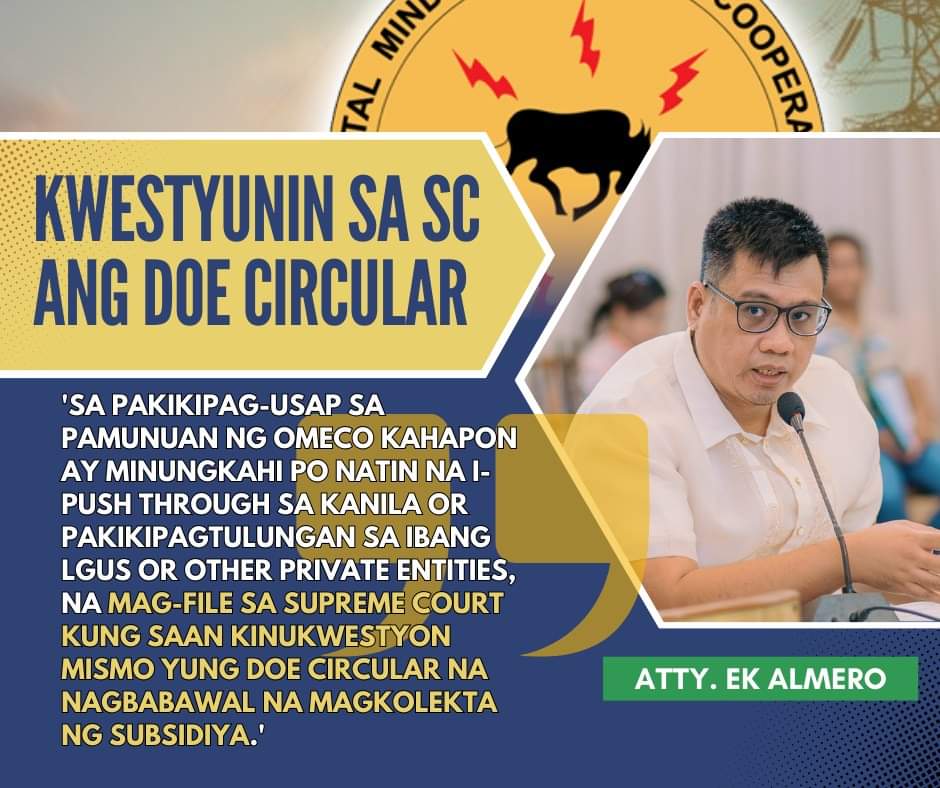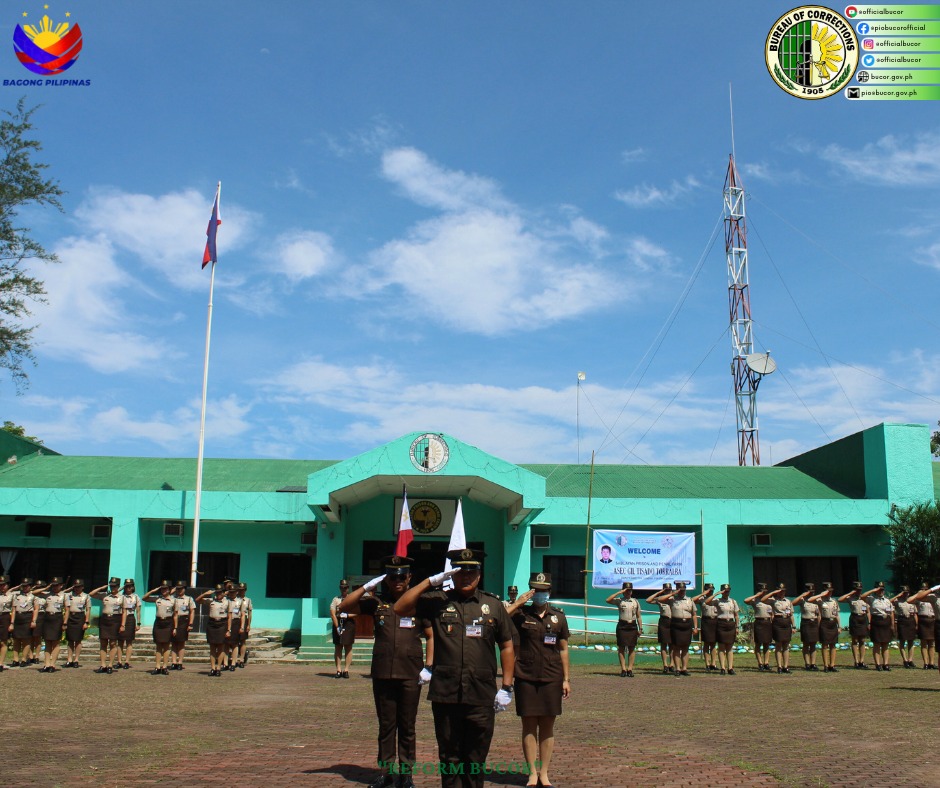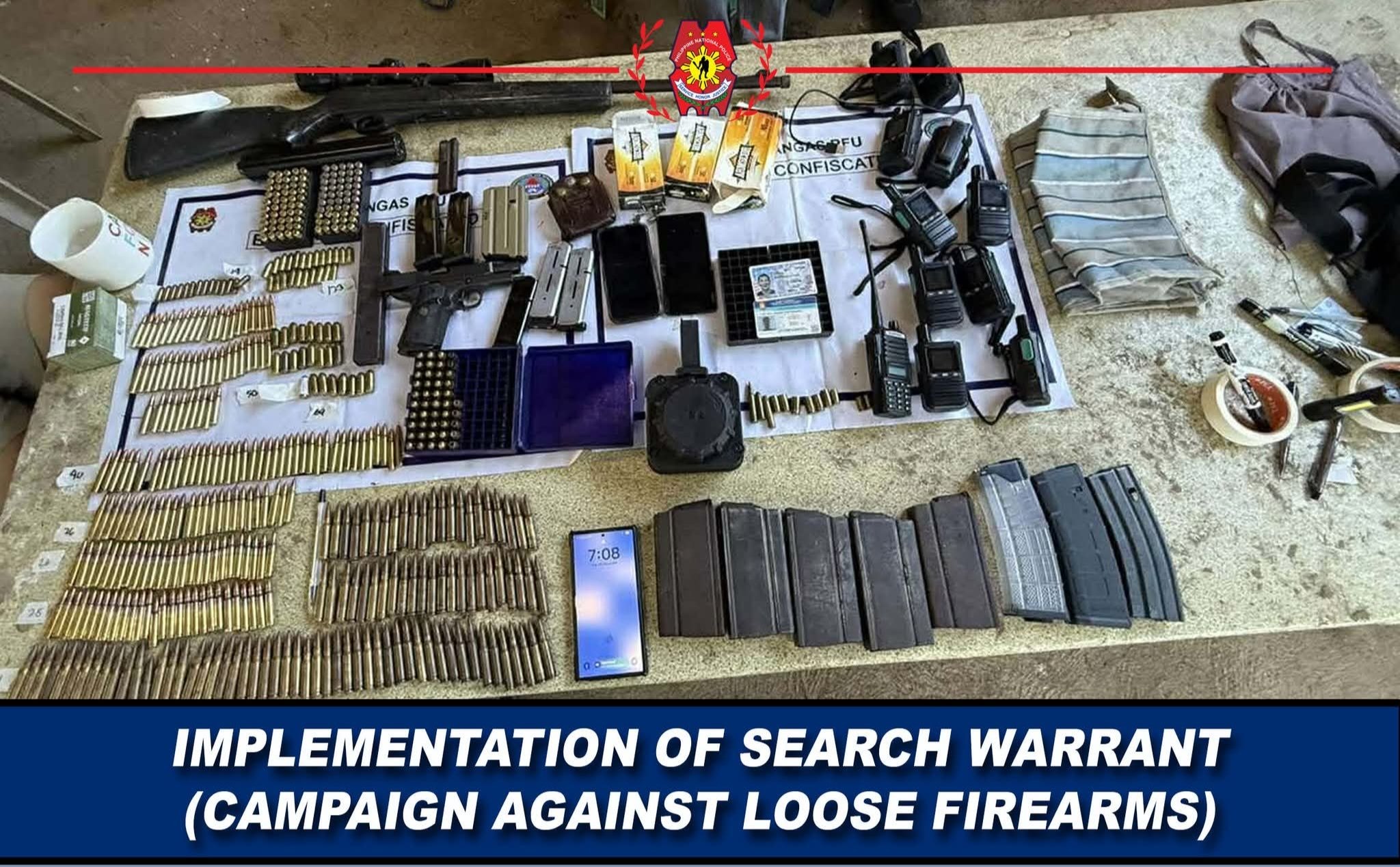An Occidental Mindoro provincial board has decided to question the Department of Energy’s (DOE) circular that denies subsidies to electric cooperatives under the Energy Power Supply Agreement (EPSA) in the Supreme Court.
According to Board Member Atty. EK Almero, the DOE circular is contrary to the Electric Power Industry Reform Act (EPIRA) Law, which mandates that all areas not connected to the national grid should receive subsidies.
“The DOE circular is favoring the private sector which will make it difficult for electric cooperatives and their consumers to access affordable electricity,” Almero said in an interview with CARE FM Mamburao.
The issue was discussed during the 96th Session of the Sangguniang Panlalawigan, where the legislative body decided to question the DOE circular and the provision of the EPIRA Law regarding subsidies.
Almero said that the DOE circular is directly opposed to the EPIRA Law, which aims to provide subsidies to areas that are not connected to the national grid.
“We will file a case in the Supreme Court to question the DOE circular and to assert the rights of our constituents to receive subsidies,” Almero said.

Meanwhile, Almero offered to provide free legal services to the provincial government to pursue the case.
“I am committed to fighting for the rights of our people, and I will do everything in my power to ensure that they receive the subsidies they deserve,” Almero said.
The provincial government is seeking a refund for the subsidies that were denied to the electric cooperative under the DOE circular.
DOE CIRCULAR
The Supreme Court has upheld the Department of Energy (DOE) circular that denies subsidies to electric cooperatives under the Energy Power Supply Agreement (EPSA) that do not comply with the required Competitive Selection Process (CSP).
In the case of Alyansa Para sa Bagong Pilipinas, Inc. vs. Energy Regulatory Commission in May 2019, the Supreme Court ruled that all PSAs entered into by distribution utilities (DUs) and electric cooperatives (ECs) which did not comply with the required CSP, as mandated by DOE Department Circular No. DC-2015-06-0008, have been set aside or rescinded.
The ruling further stated that the Energy Regulatory Commission (ERC) does not have the statutory authority to postpone the effectivity and implementation of the CSP policy of its mother agency, the DOE. As a result, the 90 PSAs submitted to the ERC for approval after the effectivity of CSP policy on or after 30 June 2015 must comply with the required CSP.
For example, one affected electric cooperative was Palawan Electric Cooperative (PALECO), whose PSA with Delta P was executed in April 2016 without undergoing the required CSP. With the promulgation of the Alyansa ruling in 2019, PALECO’s PSA was effectively voided by the SC ruling.
According to DOE Assistant Secretary Mario Marasigan, DUs and ECs were allowed to negotiate and implement EPSAs with IPPs but only while their CSPs were being conducted. During such time, the Universal Charge for Missionary Electrification (UCME) subsidy and other government subsidies could still have applied to PALECO pursuant to the DOE circular.
However, PALECO never completed any CSP since then or for over a period of six years citing COVID-19 pandemic and Typhoon Odette as reasons, among others. As a result, PALECO was denied access to the UCME subsidy that would have helped reduce its electricity rates.
In hindsight, the Supreme Court upheld the DOE circular requiring electric cooperatives to undergo CSP for their power supply agreements in order to be eligible for subsidies like the UCME. Electric cooperatives that fail to comply with the CSP policy, like PALECO, will be denied these subsidies.









Write Your Comment